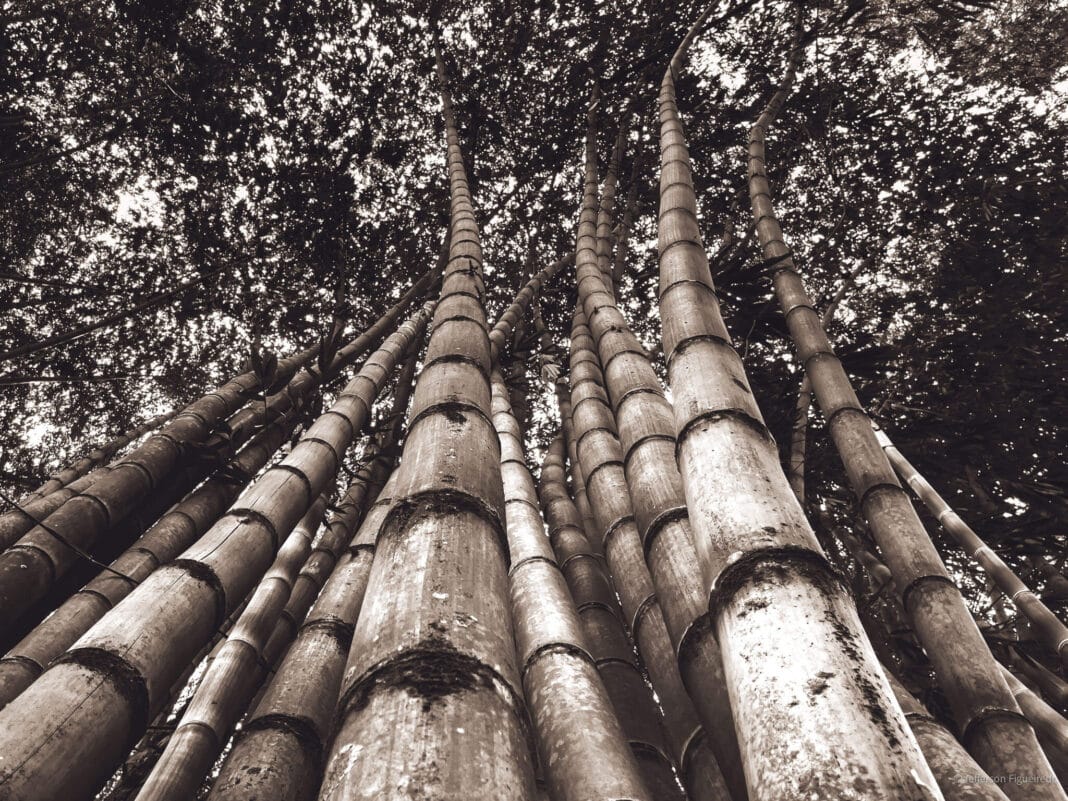Forest giant Plantations International is widening its mix of forest investments to include bamboo in Sao Paulo, Brazil.
The move represents a significant step in meeting the challenges currently faced by Brazil’s global timber and biomass industries.
Bamboo’s emergence in the forestry mix.
As reported by Wood Central in April, global investment in bamboo is booming.
Addressing the International Mass Timber Conference in Portland, international architect Michael Green highlighted the importance of bamboo.
Green emphasised its role in meeting timber demand in countries lacking forests or severely threatened forests.
“Huge parts of the world either don’t have forests or have super-threatened forests, and wooden buildings are not a good solution to the stock from sustainable forestry.”
“Our work now focuses on grasses, bamboo, other plants, and trees.”
In March, Wood Central reported that Elora Hardy – a global pioneer in using bamboo in building projects – sees bamboo as a sustainable resource and a spark for imagination.
Greenpeace Africa is pushing for bamboo plantations to replace natural forests in Kenya as a source of forest-based products.
Plantations International is driving global investment in bamboo.
Plantations International has a broad global presence with offices, plantations, and representatives across Asia, Europe, and Africa.
The company is actively developing commercial bamboo plantations in various parts of the world.
These locations include Indonesia, Colombia, Kenya, and Brazil.
The company has made significant investments in the development of bamboo for various purposes.
These include uses in fibre, biomass, pulp, food, charcoal, and engineered construction boards.
Additional applications include biochar, activated carbon, paper, luxury fabrics, tissue paper, flooring, kitchen and home appliances, bicycles, and even luggage.
Plantations International has been working with various experts to gain significant expertise.
One of these experts is Dr N Barathi from Growmore Bio-Tech in India.
Another is Dr John Woods, a pre-eminent scientist specializing in the micro-propagation of elite bamboo species.
They’ve also collaborated with leading academics from China’s top universities.
As a result of these collaborations, the company now believes it has an unmatched agriculture program for commercial bamboo plantations throughout Brazil.

Bamboo is an alternative to traditional forest products.
Bamboo is the fastest-growing plant, reaching commercial viability as a food source in less than a year.
This rapid growth makes it an excellent alternative to traditional types of timber and biomass.
Typically, these conventional sources take between 20 and 50 years to grow and reach maturity. Given the timescale, bamboo also releases more oxygen into the atmosphere than other plant species.

One of the biggest challenges for Plantations International has been to establish the best and most secure regions in which to develop and operate large-scale crops.
Accessibility to important markets has been a key, while soil and climatic conditions are crucial.
“Brazil, with its perfect climate, rich agricultural land and established agricultural industry, is the ideal choice,” according to Plantations International.
This venture will signify an initial investment of around US $15 million into Brazil in the first phase and its associated infrastructure.
Plantations International focuses on multicultural and diverse plantation projects.
These projects are geared to meet the export, domestic, and commercial demands of the countries where they operate.
A core principle of the company is to work with and support local communities.
This involves providing employment, training, social and cultural support, and investment in the community.
Furthermore, the company aims to promote sustainable and certified bamboo.
This approach is intended to steer these communities away from deforestation and illegal logging activities.
Such activities have previously been seen as a leading source of income in some regions of Asia.






